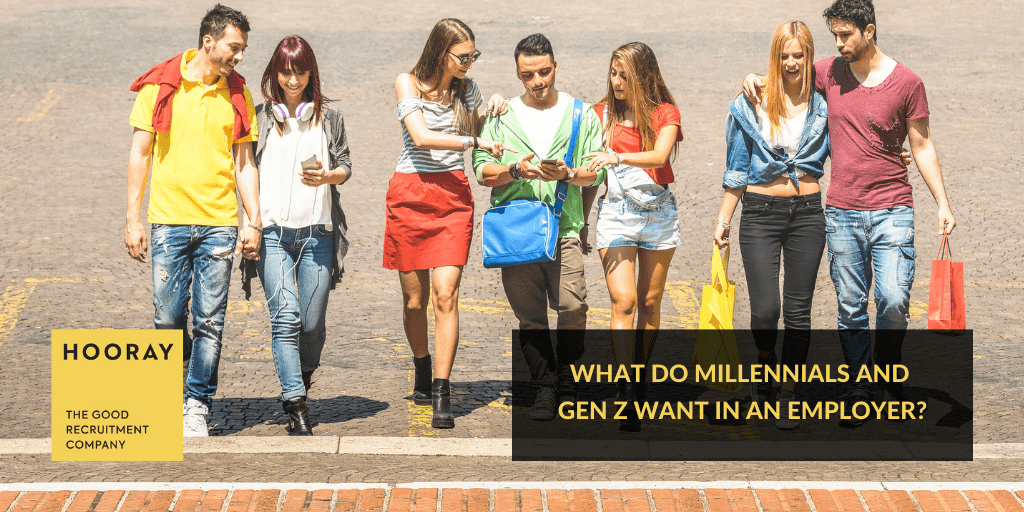What do millennials and Gen Z want in an employer?

Millennials (b.1981-1996). The very utterance of the word has been known to prompt eye rolling among many baby boomers (b. 1946-1965) and Generation Xers (b.1966-1980). As for Generation Zers (b.1997-2012), well, this could be one demographic that’s even less understood than their Millennial forebearers despite the fact that a significant number of them may have been in the workforce for the last seven years.
However, as an employer, understanding who you have within your teams is critical both in terms of forging effective working relationships from a top down, bottom up and linear perspective but also in the way organisations seek to position themselves as an employer of choice.
There are cliches galore as to what people think millennial and Gen Z workers want from their employer and career, some of which have a resonance of truth behind them and others are simply hearsay. So, let’s focus on what we do know and leave the supposition to others to talk about.
They want honesty and transparency
The last recession was a proverbial rocket up the backsides of many employers. The misdemeanours of the finance sector that precipitated the economic crisis resulted in a raft of legislation that ensured large scale organisations would have to act in a transparent and increasingly ethical way. This filtered down to businesses of all sizes, and driving this change was the Millennial generation who increasingly began to favour those employers who put people before profit.
They lean more towards businesses with a ‘purpose’
One of the lasting and positive effects of the coronavirus pandemic is the renewed demands that people – consumers, employees – have on businesses. At the beginning of the pandemic, there were some brands who went about their business by peddling their wares without a thought in the world for what was happening all around us. They didn’t read the room as they say, and consumers – customers, employees – were unforgiving. Those Gen Zers who are breaking through in their careers and the Millennials that are already half-way up the proverbial ladder now judge brands and businesses on what they say and how they act. If said brand or business shares their values, that will shape its perception as an employer of choice too.
They want to have balance
Pretty much any survey will tell you that the number one driver for workers is salary – this is as common to Millennials and Gen Z workers as it is to Gen X workers and baby boomers. Beyond salary, which after all is simply adhering to Maslow’s famous hierarchy of needs, having a healthy work-life balance is a priority for Millennials and Gen Zers. It is not because they are work-shy; rather they want to make the most of their free time to follow their passions or hobbies which in turn benefits their mental health and boosts their productivity.
They’d favour a hybrid model
Flexible and remote working was a thing way before the coronavirus came along. It has been gaining traction for some time with many employers recognising the business benefits to be gained by allowing their workers to split their time between the office and home – increased productivity and reduced absenteeism to name but two. For Millennials and Gen Zers, a ‘hybrid’ way of working is incredibly appealing as it means they can get their work done without sacrificing their quality of life.
They want to understand the direction of travel
Never has it been more apparent than during the last few months of the need to provide clarity and transparency over how the business is performing and what may lie ahead. Of course, predicting the future doesn’t provide certainty but these two generations in particular aren’t just looking to be led – they want to know how they can make a difference and positively influence the direction the business is heading, and the opportunities that might exist for them to progress their career within the same organisation.
Engaging employees is important yes but providing a forum by which they can contribute and share their ideas – and be valued by their employer at the same time – could make a significant difference to the overall business. Remember, the Post-It note was invented by a shop floor worker at 3M and is now sold in 100 countries; G-Mail was created by a developer at Google who was tasked with creating an internal communications channel and there are 1.5 billion account holders today; and, Cornflakes came about when food developers at Kellogg were experimenting with creating vegetarian dishes.